
When the three Lingenfelder brothers, Albert, Guillaume, and Francois, joined their family fruit farm near Villiersdorp in the Western Cape in 1995, 2002 and 2004 respectively, they were disappointed about the yield per hectare of apples and pears.
In 2008, they joined Two-a-Day Group, and the then technical team, headed by Dr Mias Pretorius, went out of its way to help the brothers increase their tonnages of apples in particular. Today, their farm, Rustfontein, produces 75% more crates of apples than in earlier years and is amongst the top 5% of suppliers to Fruitways, a specialist marketer of apples and pears.
The Lingenfelders' technical adviser, Anton Muller, also has a major influence on their success.
"Anton has the vast industry experience and is a top specialist in his field. We work well with him because we share the same vision and production philosophy," says Albert.
HIGH-DENSITY PLANTING
Albert identifies the switch from traditional to higher planting densities as one of their main game changers. The first apple trees on the farm were planted at 5m x 3m intervals in 1978, and this was reduced over time to 4,5m x 1,5m, and then to 3,5m x 1,5m in 2016.
"Instead of 666 trees/ha, we now have 1905 trees/ha, allowing us to maximise income, while using our land, water and other resources, such as pumps, farm implements, and labour, more efficiently," he explains.
The farm has 110ha planted to apples and 36ha to pear trees, with about one-third of the apple orchards so far being planted at high density.
Guillaume encountered the results of high-density planting first-hand in 2016 when he accompanied Two-a-Day's technical team to Bolzano, Saluzzo, and South Tyrol in Italy to study how the Italians farmed apples.
This story is from the Farmer's Weekly 30 September 2022 edition of Farmer's Weekly.
Start your 7-day Magzter GOLD free trial to access thousands of curated premium stories, and 9,000+ magazines and newspapers.
Already a subscriber ? Sign In
This story is from the Farmer's Weekly 30 September 2022 edition of Farmer's Weekly.
Start your 7-day Magzter GOLD free trial to access thousands of curated premium stories, and 9,000+ magazines and newspapers.
Already a subscriber? Sign In
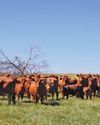
The genetically unique Senepol: ideal for beef production in Southern Africa
Since its arrival in South Africa in 2001, the Senepol has become a strong contender in the country's beef cattle arena. Tiekie Muller, owner of the Nooitgedacht Senepol stud, spoke to Annelie Coleman about how the growing number of Senepol stud breeders underpins the value of the breed under exacting African conditions.

Microwave mango and granadilla cheesecake
This delicious mango fridge tart is so easy to make, perfect when you want a quick yet indulgent dessert (it only takes 25 minutes to whip up). The fruit’s gorgeous colour and fragrance are maximised.
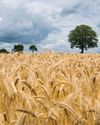
Global outlook for wheat in 2024/25
In its latest estimate, the International Grains Council has adjusted global wheat production for the coming season due to poorer-than-expected harvests in the EU. However, global supplies remain strong, while global consumption is expected to increase to reach about 804 million tons. Janine Ryan reports.
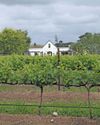
From fallow land to award-winning wines: the Newstead story
Newstead Lund Family Vineyards, a relatively new wine estate, has established itself as one of the best producers of sparkling wine in South Africa. Owners Doug and Sue Lund spoke to Glenneis Kriel about their production philosophy, rise to success, and possible expansion plans.

Fact file of fungal diseases in wheat
Wheat is a significant crop, and like other crops, is susceptible to a range of infections. Here, we provide information on the most important fungal diseases that affect wheat.
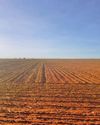
Soil preparation for wheat and other cereals
For seed to germinate and plants to grow, soil often needs to be prepared. The manner in which it is done depends on the type of soil, the organic matter and moisture it contains, the crop to be planted, as well as the previous crop that was planted in the field. Magda du Toit spoke to cereal experts and farmers for guidance.

The origin of the Bonsmara
The Breed of the Month for March is the Bonsmara. In this first article, we take a look at the man behind this popular cattle breed, as well as how it was developed.

The Southern Sun Cape Sun hotel is once again a destination of choice
While some of its contemporaries have suffered from inner-city neglect, the Southern Sun Cape Sun hotel has bounced back in elegance and style, writes Brian Berkman.

Age catches up with the Nissan Navara
The Navara line-up was increased last year in Nissan's effort to win back market share. The Citizen's Mark Jones sampled the top-of-the-range Pro-4X to see how the double cab compares with modern bakkies.
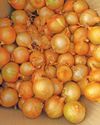
Growing onion sets
Bill Kerr discusses what onion sets are, and how and when to produce them to obtain the maximum financial benefit.
